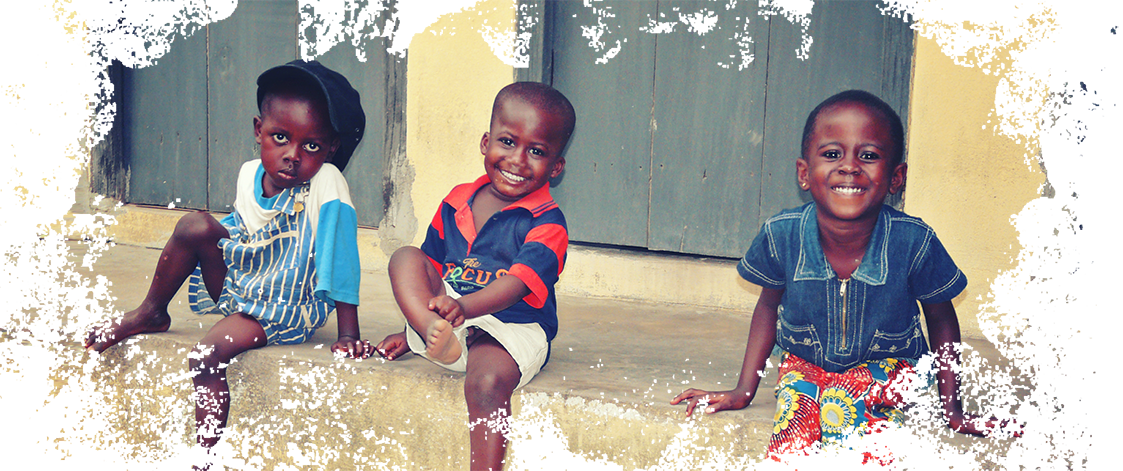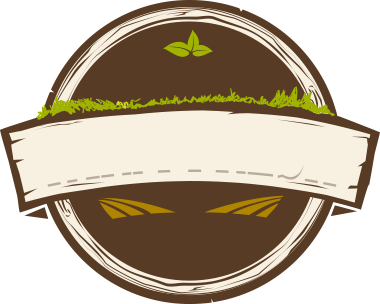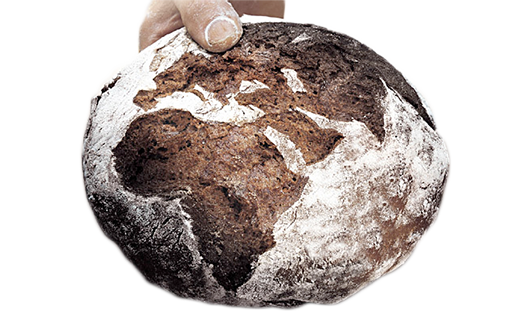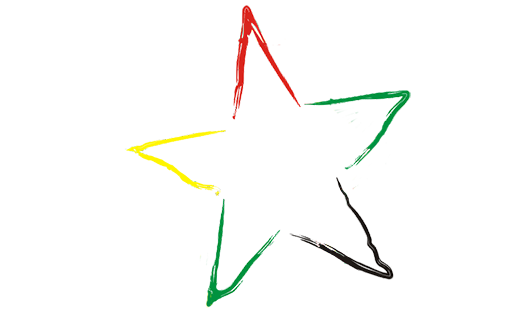About the project
Our work will give the children who hear about our project an opportunity to come to us at any time. Local contact points such as the social services or other aid organisations will be informed about our project with fliers and via the Internet, so that they are aware that we can take in children who are in need and act as multipliers. The admission procedure will be as simple as possible. After a familiarisation phase, local carers will provide our German social worker with continuous progress reports via Internet. The carers in Ghana will explain and examine the children’s development problems and discuss the details of what is needed. Agreed targets for each child’s development will be specified. Everyday education will be governed by rules, rituals and participation by the children.
After admission, the first step is to provide the children with food and drink and give them the opportunity to settle in. As soon as trust in the adult contact person has been established, the children will be medically examined and given any treatment which they need.
There are no conditions for admission and because the children are reluctant to talk about their background, we will wait until they are ready to talk to us. If a child talks about its mother a lot, we will try to visit her to find out about her living situation and if possible to integrate her into the project. If parents are unable to provide for their child, we will stay in contact and ask them to help us by working on the farm to support their child. This will ensure that the child remains in contact with its parents, strengthen the parents’ self-esteem and feeling of responsibility. Parents will be advised about nutrition, important medical topics and contraception, and will receive information about local aid projects for adults.
We will provide the children with housing which consists of a house with four living rooms and a large kitchen area. In the initial phase, once the first house is built, their rooms will be furnished with 6 beds. At first we will only be able to take in 12 children, as space in the house is limited. The remaining eighteen children will live with local families and be brought to us every morning. We will extend our housing facilities as soon as our finances permit. In the long term we plan to take in 100 children. An adult contact person will be permanently present at the farm. These contact persons will hold regular team meetings with our German social worker via Internet. She will also receive information about the meal plan for the week as well as the children’s medical care, and if necessary she will contact dieticians and doctors in Germany to enable us to provide the right care.
A nutrition concept based on the latest knowledge about produce which is available locally will be used to eliminate malnutrition. We believe that the information which we receive from Germany will enable us to act as multipliers for the local population. In this way, our development aid will act beyond the boundaries of the farm.
The network with Germany will enable us to discover the children’s resources, and find their interests and potentials, as well as monitoring their medical development in order to help them to become independent. Within the household, the children will be given tasks which are suitable for their age as part of a process of ‘learning by doing’. These tasks include housework and gardening over periods which are limited to about 3 hours per day from the age of six. Younger children will accompany them and play under the supervision of adults. From the age of 4, the children will be put into groups which provide mutual support, so that older children adopt the younger ones and show them their capabilities.
This also means that sponsors can share in the development of the children. We will also give you the opportunity to contact the children by post without our supervision. This will serve as an area for reflection which is not influenced by us. Feedback from sponsors will be collected by the social worker and critical comments will enable us to find out which areas need further attention.
From the age of 6, school attendance is compulsory and we will start this as soon as the children have recovered a little after admission. However, children must regularly attend school after six months at the latest. Until we have our own school building, the children will receive lessons outdoors. The main subjects are reading, arithmetic and writing in English. German will be used in play from the very start, so that contact to the German volunteers and sponsors can be maintained. On our farm, learning is not just confined to theoretical knowledge. Many practical skills will be also be taught. Cooking, creative handicrafts, agricultural methods and environmental awareness will be promoted within the household.
The main objective is to enable the children to become independent through education and realise their resources and potentials. Suitable educational subjects will be established in the course of the project. In the long term this will create jobs, and the sale of agricultural and craft products will make the project financially independent.











